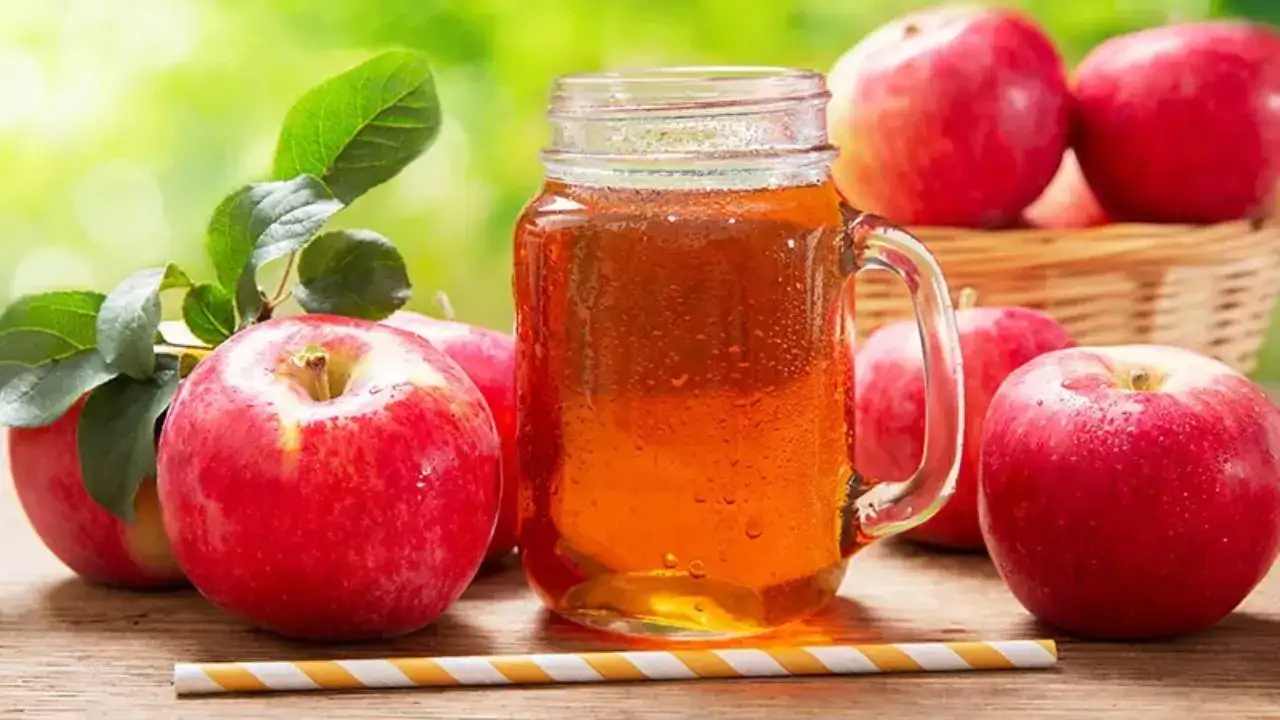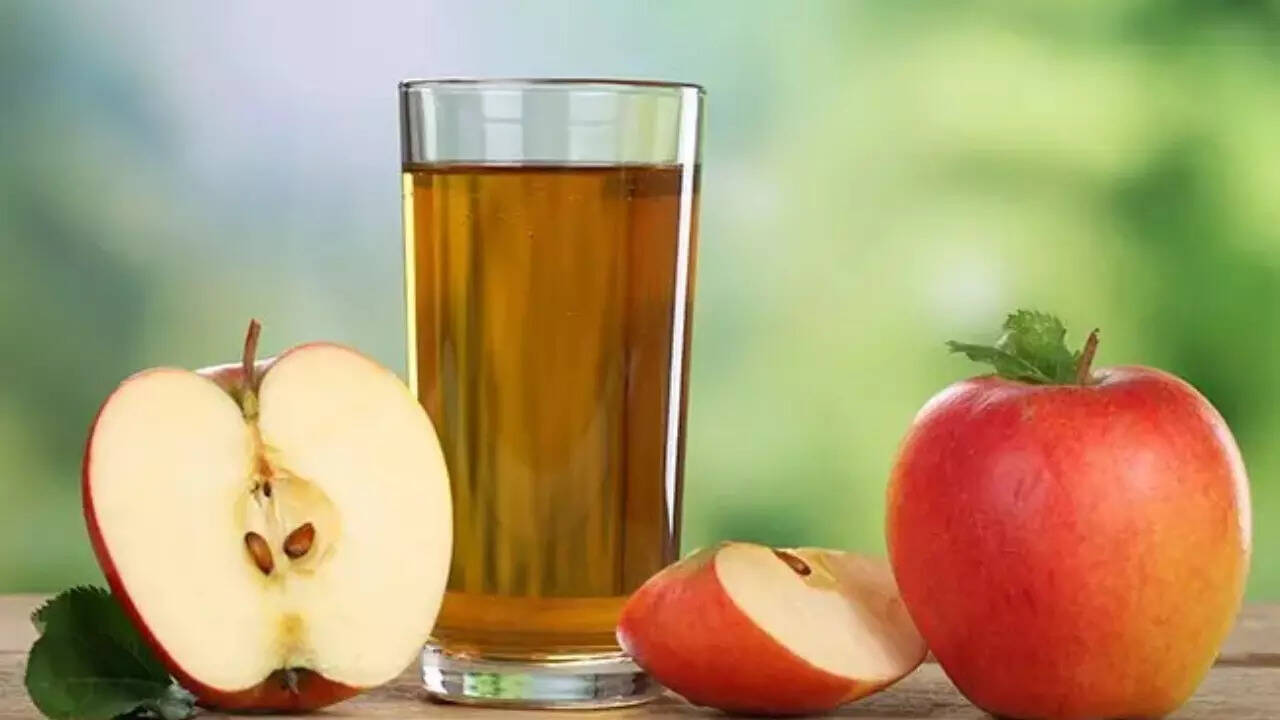Apple Juice and your body: Benefits, risks, and what to watch out for

An apple a day has been known to keep the doctor away.A glass of apple juice? That’s a little more complicated than the fruit itself.Apple juice has been a childhood favorite; however, as we’ve grown up, that pristine golden liquid has found its way on the brunch tables and to-go mason jars. And to tell you the truth, touted for its health benefits, apple juice has been a staple in diets all around the world. With its crisp flavor and natural sweetness, it’s often viewed as a wholesome alternative to sugary sodas. From supporting hydration and supplying antioxidants to contributing to weight gain or spiking blood sugar, apple juice is both praised and questioned in wellness circles.However, is it all pros and no cons?Turns out, it’s not that simple.While apple juice contains antioxidants and hydrating properties, it’s also high in sugar and low in fiber, raising some health red flags. As more people turn to natural drinks and “healthier” alternatives to soda, understanding what a glass of apple juice really offers becomes more important than ever.
What makes apple juice ‘seem’ healthy?
Apple juice is made by crushing and pressing apples to extract their liquid, often filtered for clarity or left cloudy for a more natural texture. It’s rich in vitamins and minerals, primarily vitamin C, potassium, and various antioxidants. Many consumers gravitate toward apple juice because it’s fruit-based, perceived as “clean,” and widely available in convenient packaging.

The health benefits
Boost hydration: Apple juice is about 88% water, making it a decent hydration source. It also contains potassium, an essential electrolyte that supports muscle function and heart health. In cases of mild dehydration, diluted apple juice is often recommended, especially for children, because its mild sugar and electrolyte content help with fluid absorption and boost the taste of the drink too. In a study of mildly dehydrated children with diarrhea and vomiting, those offered diluted apple juice were 6.5% less likely to need fluids delivered via their veins than those given a medicinal electrolyte drink.Rich in antioxidants: Apple juice contains polyphenols, powerful antioxidants that help reduce oxidative stress and inflammation. These include flavonoids like quercetin, catechins, and chlorogenic acid, which have been linked to lower cholesterol, reduced blood pressure, improved immune response, and even lower cancer risk in some studies. Notably, cloudy (unfiltered) apple juice retains more of these antioxidants compared to clear juice.May support heart health: Some studies suggest that the polyphenols in apple juice may help reduce “bad” LDL cholesterol and raise “good” HDL cholesterol. While the effect is modest, regular moderate intake could support cardiovascular wellness, especially when replacing sugary sodas or processed beverages.Mild digestive aid: For those recovering from illness or stomach upset, apple juice (especially diluted) can be gentler on the digestive system than whole fruits or fiber-rich foods. It’s also used as part of clear-liquid diets for short-term medical recovery.Cognitive and neurological support: Emerging research links apple juice with improved brain function and a possible protective effect against Alzheimer’s disease. A study found that apple juice helped maintain levels of acetylcholine, a neurotransmitter crucial to memory. While human data is limited, some nutritionists argue that the antioxidant-rich juice may help reduce age-related cognitive decline.
Concerns and downsides of drinking apple juice
While it comes from fruit, its health effects depend largely on how it’s processed, how much you drink, and what kind you choose.

High in natural sugars: A standard 8-ounce serving (240ml) of apple juice contains around 24-28 grams of sugar, nearly equivalent to a can of soda. Though this sugar is ‘natural’, it still can cause rapid blood sugar spikes, especially in people with insulin resistance, prediabetes, or type 2 diabetes.Pro tip: Look for 100% juice with no added sugars, and always read labels for “apple-flavored drinks” or “juice cocktails,” which may contain high-fructose corn syrup.Low in fiber: This one’s a universal issue with fruit juices. Unlike whole apples, apple juice contains very little dietary fiber. A medium apple has 4 grams of fiber, but juice has less than 0.5 grams. Fiber is essential for digestive health, blood sugar regulation, and satiety. Removing the pulp and skin in the juicing process strips away most of this key nutrient. This makes apple juice far less filling than eating a whole apple and easier to overconsume.Dental health concerns: The sugar and acidity of apple juice can erode tooth enamel, particularly in children who sip juice throughout the day. Dentists often advise limiting juice intake to reduce cavity risk. Sipping juice over extended periods is especially harmful, as it prolongs exposure to sugars on the teeth.Potential for heavy metal contamination: Consumer reports in recent years have flagged certain commercially packaged apple juices for containing trace levels of arsenic, lead, and cadmium. These metals can accumulate over time and pose developmental risks to children. When the US Department of Agriculture tested 379 samples of nonorganic, 100% apple juice, about half of them contained detectable levels of at least one pesticide. Though levels are regulated by the FDA, parents should exercise caution and choose brands with transparent sourcing and a trusted reputation.
So… Who wins (and what to watch out for)?
Let’s face it: with all the risks and concerns around consuming apple juice, it’s way too popular, convenient, and tasty to give up. However, there’s no denying that while apple juice provides hydration and quick energy, whole apples remain the gold standard. Apples are packed with fiber, vitamins, and a lower glycemic index. They help keep you full longer and provide a gentler effect on blood sugar.

But in case you’ve made up your mind to pick apple juice over apples, it’s essential that you exercise caution(s), such as:Added sugars and artificial ingredients: Always read labels. Many juice products labeled as “apple juice” are actually blends with added sweeteners or preservatives.Clear vs. cloudy juice: Cloudy apple juice retains more polyphenols due to the presence of apple solids. It’s nutritionally superior to ultra-filtered varieties, which prioritize clarity over content.Portion size: Even healthy juice can be unhealthy in excess. A sensible serving is 4-6 ounces per day for children and up to 8-10 ounces for adults. Always pair with a meal to buffer blood sugar spikes.Fresh vs. pasteurized: Fresh-pressed apple juice may offer more enzymes and a richer flavor profile. However, unpasteurized juice carries a higher risk of bacterial contamination (like E. coli or Salmonella), especially for immunocompromised individuals. Pasteurized versions offer safety but may lose some antioxidant potency.Disclaimer: This article is for informational purposes only and is not intended as medical advice. Always consult a healthcare professional before making dietary changes, especially if you have underlying health conditions such as diabetes, kidney issues, or gastrointestinal disorders. The nutritional content of apple juice may vary by brand and preparation method.






